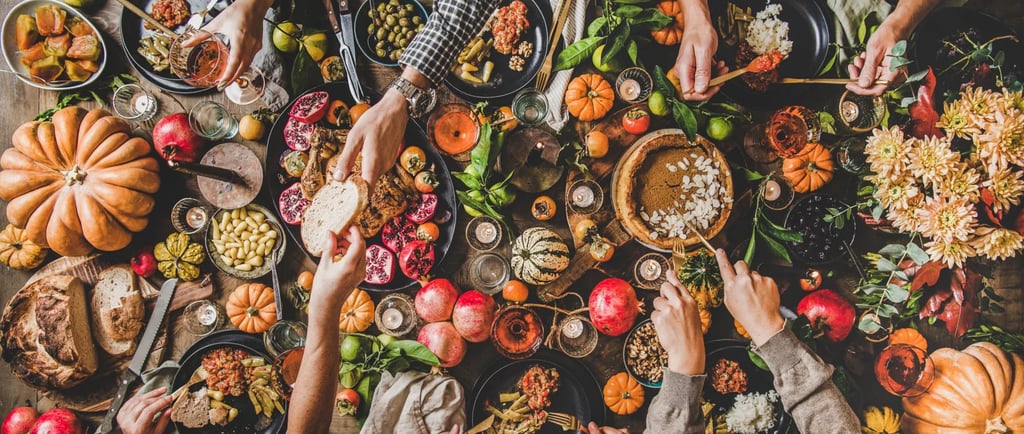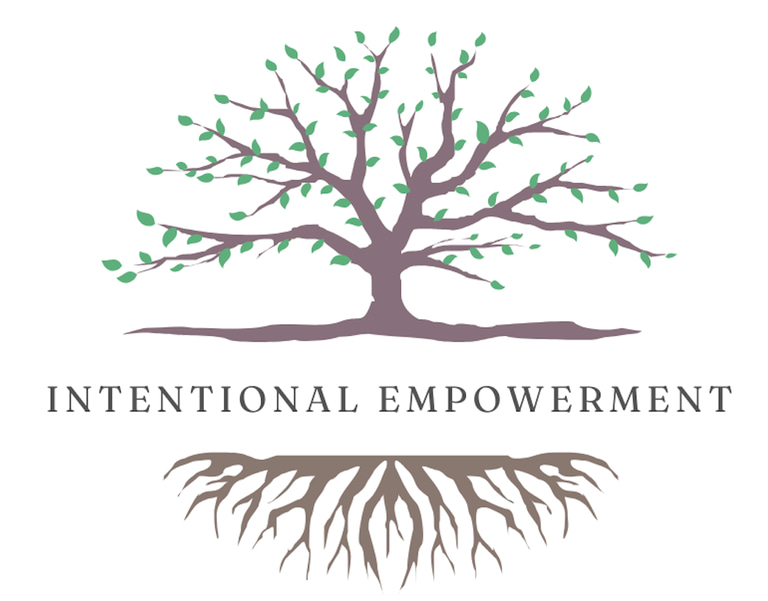The Cure for Hyperindependence
We were never meant to do life alone. The cure for hyperindependence is learning to trust again, to give freely, receive humbly, and let grace flow through every part of life, from our relationships to our workplaces.
LIFE SKILLSFAITHADHD
Jess Sumerak
11/2/20257 min read


Hyperindependence looks like strength from the outside: the person who handles everything, never asks for help, and always seems to “have it together.”
But underneath, it’s often a trauma response. It’s what happens when you’ve been let down so many times that self-reliance becomes your only form of safety. You stop trusting others to show up, so you learn to survive alone.
I used to think independence was strength.
I worked hard, earned everything I had, and wore self-sufficiency like armor. I told myself I didn’t need help, not because I was proud, but because I’d learned that needing people was dangerous. When you grow up being let down, ignored, or punished for asking, “I’ll do it myself” becomes the safest way to live.
For a while, it worked. I paid my bills, raised my kids, held everything together. But inside, I was exhausted, not just from the doing, but from the not trusting.
I didn’t realize how heavy my life had become until someone tried to help me carry it. My instinct wasn’t gratitude; it was guilt. I wanted to shove their kindness back into their hands like it burned.
That’s when I realized: hyperindependence isn’t strength. It’s a scar.
How Hyperindependence Breaks Community
When trauma teaches you that relying on others is unsafe, you start building your own world where you never have to ask. You overwork. You overprepare. You stockpile, not just money, but time, energy, and control. You become your own village, but you live alone inside it.
And when everyone is doing that, when entire societies are filled with people who don’t want to need or be needed, community dies.
You see it everywhere:
People hoard resources they once fought to earn.
Neighbors stay strangers.
Help becomes transactional, not relational.
And everyone quietly wonders why they feel so disconnected.
Hyperindependence creates a false sense of control, but it also builds walls. You start believing, “If I can take care of myself, I won’t owe anyone.”
But that’s not how life, or faith, was ever meant to work.
However, our capitalist society thrives on it. Separating us makes us easier to control.
The Shift: Give What You Can, Take What You Need
Healing starts when you realize that giving and receiving are two sides of the same flow. You can’t have one without the other.
If I go to a food bank because things are tight, that doesn’t make me less worthy or less grateful. It means I’m allowing the system of care to work. Later, when I have more, maybe I donate to the same food bank or give to someone else in need. That’s community. That’s balance.
Judgment and “worthiness checkboxes” are obstacles to true giving through love. We need to stop deciding who deserves help and who doesn’t. That kind of judgment keeps resources from reaching the people they’re meant for, and it keeps those in quiet need from ever asking. Many of us minimize our own struggles by saying, “Someone out there has it worse.” That’s not humility; it’s a trauma response. It’s how we make our pain feel tolerable, even when it isn’t.
And when resources are available, only take what you truly need. Don’t hoard. Don’t panic. Don’t overcompensate. Share out of your abundance. If you pick up apples from a food drive and can’t use them all, give some to your neighbor. Make applesauce and pass it around. Let the blessing keep moving.
If everyone hoards out of fear, resources stagnate. But if everyone gives what they can and takes what they need, the flow never stops.
We can’t live our lives afraid of being taken advantage of. Yes, some people will take more than their share, that’s inevitable. But living in constant suspicion creates a world where generosity can’t survive. And that’s a far greater loss.
The Spiritual Reframe: Stewardship, Not Ownership
If you’re a believer, you eventually come to understand this: nothing you have is truly yours. Not your money, your home, your time, your energy, all of it is on loan. We are stewards of God’s resources, not owners of them.
When you give freely, God blesses you, not always in the same currency, but always in the right one. It might come as peace, wisdom, love, friendship, or financial provision. It might not look like what you expected, but it’s always what you need.
That’s because giving isn’t a transaction. It’s not an investment strategy to “get blessed.”
God isn’t a vending machine for virtue.
He looks at your heart, not your math.
If you give to look generous, you’ll walk away empty. But if you give because you understand that you’re part of something bigger, that everything you have is already His, then you’ll always have enough.
The Mindset of Enough
This doesn’t mean giving recklessly. Stewardship is not self-sabotage. If your rent is due tomorrow, you don’t empty your bank account in the name of virtue. You keep what you need to live responsibly. But you stay aware: am I hoarding out of fear, or saving out of wisdom?
When I spend now, I try to ask myself:
Is this something I need, or something I’m using to feel safe?
Could this same resource help someone else survive?
Am I keeping more than I actually require?
It’s not about guilt; it’s about awareness and considering the needs of others in your overall perception.
A $500 designer purse isn’t evil, but if it exists in a world where someone nearby can’t afford to eat, maybe there’s a better way to use that money. Sometimes “treating yourself” looks like simplifying your wants so someone else can meet their needs.
Even small acts matter.
Selling your kid’s old snow boots on Facebook Marketplace so another family can afford them, that’s community.
Swapping, sharing, reusing, that’s stewardship in motion.
That’s how we keep the flow alive.
The Daily Bread: Trusting God With Today
There’s a reason Scripture tells us to pray for our daily bread. Not next year’s bread. Not a lifetime supply in a bunker. Daily.
That verse used to frustrate me. My trauma-trained brain wanted a five-year plan, a safety net, a guarantee. I thought peace would come when I finally had “enough” saved, stocked, or secured. But that kind of peace never arrives, because when you’re stuck in a survival mindset, “enough” always moves just out of reach.
Hyperindependence turns foresight into fear. It whispers that preparation equals safety, that control equals peace. But real peace doesn’t come from knowing the future; it comes from trusting God with the present.
Today, I have food in my home.
Today, I have people who reach out.
Today, my body is healthy enough to move, and my spirit is quiet enough to listen.
And today, that’s enough.
Practice restraint and awareness of the abundance all around you, and you'll find your needs decrease significantly. That piece of cake you ate when you don't do that every day? A sign of decadence in your life. Going out to eat when you save it as a treat? A reason to rejoice.
Practice restraint in all you do, and you'll be rewarded with a sense of peace and awareness of how you are truly provided for daily.
Tomorrow will bring its own needs, and when it does, God will meet them. He always has. The miracle of daily bread is that it keeps us dependent, not on others in a fearful way, but on the divine flow of provision that moves through others to reach us. It’s what keeps the system of giving and receiving alive. It teaches us gratitude for what is, instead of anxiety for what might be.
When we live this way, when we trust that each day will provide what it’s meant to, we can finally stop hoarding for imaginary tomorrows and start living fully in the grace of now.
The Cure
The cure for hyperindependence isn’t learning to need people all the time. It’s remembering that we were always meant to need each other.
Every time we give without fear, or receive without shame, we heal a small part of the world.
Every time we choose trust over pride, the flow moves again.
And every time we remember that all of this, the money, the time, the love, belongs to God anyway, the burden of self-reliance starts to lift.
I still catch myself clenching my jaw when someone offers help. But now I take a breath. I remind myself that strength doesn’t mean doing everything alone. It means keeping my hands open, to give, to receive, and to let grace move through me.
Because the truth is, nothing we keep is ever truly ours.
The miracle is that we get to hold it for a while and pass it on. God may be answering your prayers through others, and you have to learn to receive to accept it.
Carrying It Forward
At Intentional Empowerment, LLC, I’m weaving these same principles into the fabric of workplace culture. Because as organizations grow and shape more of our daily lives, they also shape the values that ripple through our communities.
Right now, it often feels like only nonprofits exist “for the people.” But that divide, between profit and purpose, between giving and surviving, was never meant to exist. Every business, no matter the industry, has the power to participate in this flow of stewardship, reciprocity, and care.
If you lead a business or are building one, and these ideals resonate with you, let me help you bring them to life inside your organization. Together, we can build cultures that outlast titles and leadership changes. Cultures that honor the people who make your business thrive and ensure that success continues to give back.
At Intentional Empowerment, my mission is to help companies rediscover what business was meant to be: a relationship built on mutual trust and exchange, not extraction and fear. A place where giving and receiving aren’t opposites, but part of the same sustainable rhythm.
Feel free to explore my other writings, reflect on these concepts, and start applying them in your own organization. And if you’re ready to move intentionally in that direction, I’d be honored to help you get there.
Intentional Empowerment, LLC
Empowering people-first, Research based, business strategy & employee well-being
© 2025 Intentional Empowerment. All rights reserved.
Follow us on social
Have a question? We're here to help.
📧 jessicasumerak@gmail.com
📍 Twinsburg, OH (Serving clients nationwide)
